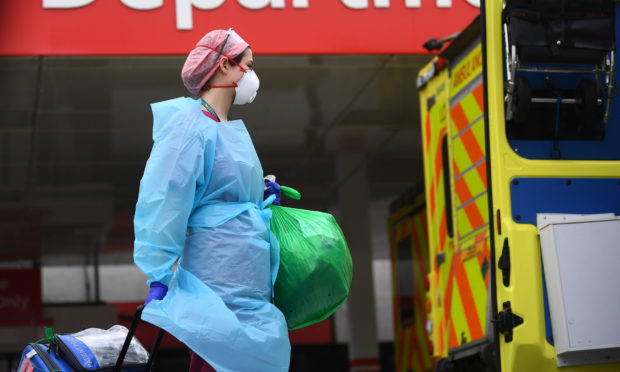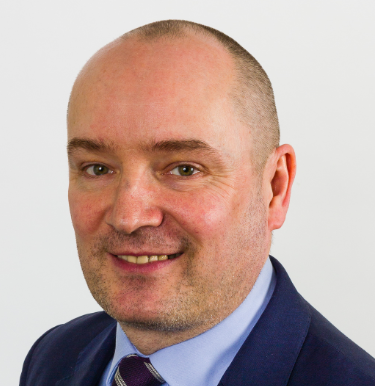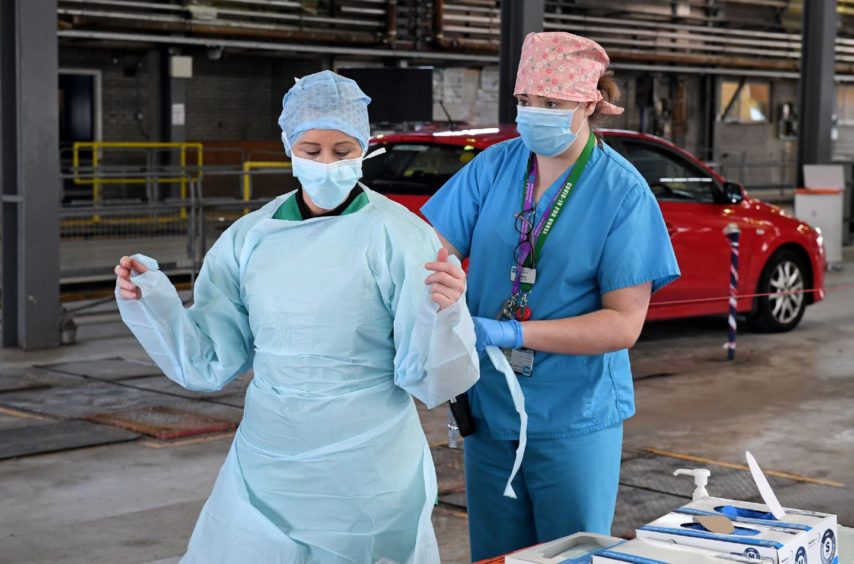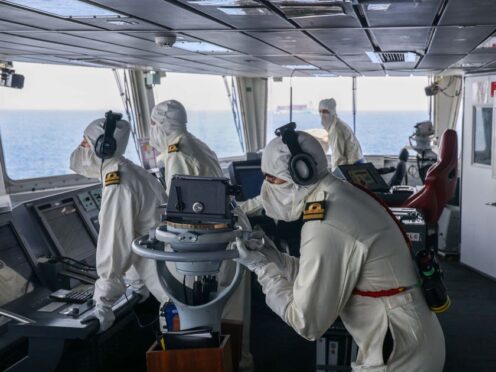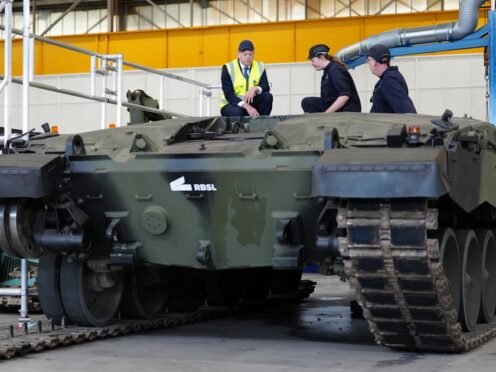The coronavirus pandemic has brought the issue of personal protection equipment badly-fitting the female workforce into the spotlight, a trade union body has argued.
The issue is one which trade unionists have raised for many years but has been brought into “sharp focus” in the midst of the coronavirus outbreak, following complaints from nurses that the PPE they have been wearing for 12.5-hour shifts is “designed and made to fit men”.
One nurse said masks have to be tightened to fit women, making them even more uncomfortable to wear during long shifts in hospital.
The Royal College of Nursing Scotland, which represents nurses, health care support workers, nursing students and midwives across the country, confirmed it has had reports of problems getting masks to fit properly.
Meanwhile, the Scottish Government said it is providing boards with “additional support” to ensure staff are fitted with masks correctly before carrying out their duties, and has provided them with extra machines to speed up fit-testing and give assurances to staff that they are safe to work.
Scottish Labour’s health spokeswoman Monica Lennon said it is “not acceptable” that in 2020 life-saving PPE equipment is designed for men by default.
She said: “Badly fitting personal protective equipment is something that many women working in healthcare and our emergency services have had to put up with for too long.
“Trade unions and campaigners have warned for years that poorly fitting PPE can prove fatal, a subject covered in Caroline Criado Perez’s book Invisible Women.
“In 2020 it’s just not acceptable that the default design of life-saving equipment is based on the body of a man.
“The coronavirus outbreak has brought this global inequality into sharp focus.
“Governments and employers have a responsibility to comply with the law and keep their workers safe.”
Norman Provan, RCN Scotland associate director, said nursing staff are on the “front line” of fighting the pandemic and must be supplied with adequate PPE.
He added: “We know that in the face of this crisis, our members want to deliver the best and safest care they can.
“Nursing staff that are required to wear a specialist FFP3 face mask must have this fit tested to ensure it provides protection.
“Where staff are concerned that their mask does not fit correctly, this should be escalated and employers must resolve the situation to ensure staff and patients are not put at risk.”
‘Lack of regard for women workers’
The Scottish Trades Union Congress (STUC), which represents more than 540,000 trade unionists, states it is a “concern” that “many trade unionists” have spoken about in recent years.
STUC general secretary designate Rozanne Foyer said it shows a “lack of regard” for women workers, even in sectors where they form the majority of employees, such as nursing.
She added: “Ill-fitting and uncomfortable PPE not only prevents women doing their job, it can be a significant health and safety issue.
“This issue has never been so pertinent as it is right now during the coronavirus pandemic.
“If PPE is not protecting people, then it is unsuitable. All workers deserve personal protective equipment that fits adequately.
“We encourage everyone who is affected to contact their union rep and/or union official and have the issue escalated.”
This issue has never been so pertinent as it is right now during the coronavirus pandemic.”
The TUC, the equivalent body representing trade unions across England and Wales, issued specific guidance in 2017 on the problems women face with PPE.
A 2016 survey conducted by a number of organisations, including the trade union Prospect and the TUC showed that 57% of those women who took part found that their PPE sometimes or significantly hampered their work.
It also found that only 29% of women who responded said that the PPE they use is specifically designed for women.
The guidance states: “This is not surprising as most PPE is based on the sizes and characteristics of male populations from certain countries in Europe and the United States.
“As a result, most women and also many men, experience problems finding suitable and comfortable PPE because they do not conform to this standard male worker model.”
A Unison spokesman said it is “vital” that staff on the front line get the PPE they need to keep them safe.
He added: “You only have to look at images of health workers who remove their face masks at the end of a long shift to see how uncomfortable their PPE can be.
“These workers are putting themselves at great risk to care for us, the least they can expect is the PPE they need to do their job.
“Unison continues to fight for the most appropriate PPE for all staff and to ensure we have safe working practices.”
You only have to look at images of health workers who remove their face masks at the end of a long shift to see how uncomfortable their PPE can be.”
The issue is also one which has been highlighted at length by activist and author Caroline Criado Perez in her book ‘Invisible Women: Exposing Data Bias in a World Designed for Men’.
In an interview with CNN news anchor Christiane Amanpour, Ms Criado Perez said the “vast majority” of PPE has been designed for men as the male body is used as a unisex body.
She said: “When it comes to PPE, I’ve heard a lot of stories covering the huge issues we’re having getting hold of PPE to protect our frontline workers.
“But what people aren’t talking as much about is the majority of those frontline workers are women and they of course are the ones who are most at risk as one of the factors on whether you live or die is the viral load to which you’re exposed.
“And if you’re on the frontline you’re going to be exposed to a higher viral load and we’re hearing a lot of reports from women saying the mask do not fit their faces because they’re just too big.
“They’re designed for bigger heads than the average female face, they cannot account for a typical female jawline.”
As more men than women die from coronavirus, it’s essential to collect sex-disaggregated data on this. But history isn’t encouraging. As @CCriadoPerez explains, “it all comes down to the way that we tend to think of men as what I call the default human being.” pic.twitter.com/w2FzDStWxn
— Christiane Amanpour (@camanpour) April 13, 2020
Responding to the concerns raised, a Scottish Government spokeswoman said it is “absolutely determined” that all healthcare staff get the right personal protective equipment to keep them safe.
She added: “That is why we have set up a dedicated email so any health worker with concerns can contact us immediately.
“NHS National Services Scotland is providing boards with additional support to ensure that staff are fitted with masks correctly before carrying out their duties.
“This includes the provision of extra machines which can speed up fit-testing and give assurance to staff that they are safe to work.
“We have also introduced improved systems for supplying PPE to hospitals, including a streamlined ordering system for all staff.
“Over the last few weeks, more than 60 million items of PPE have been delivered to hospitals in Scotland providing care for coronavirus (COVID-19) cases and other conditions.”
